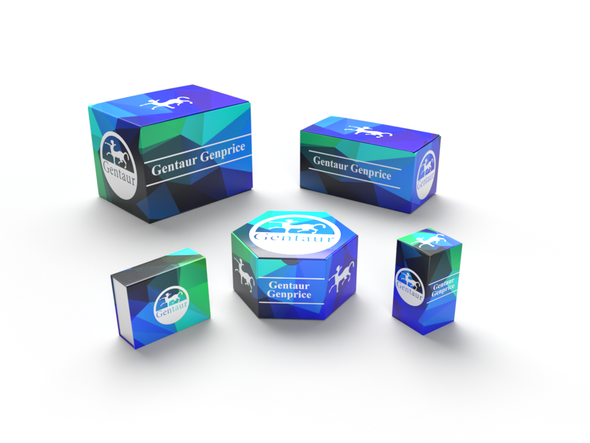Description
COCH Antibody | 22-314 | Gentaur UK, US & Europe Distribution
Host: Rabbit
Reactivity: Human, Mouse
Homology: N/A
Immunogen: Recombinant fusion protein containing a sequence corresponding to amino acids 20-260 of human COCH (NP_001128530.1) .
Research Area: Cell Cycle, Neuroscience, Signal Transduction
Tested Application: WB, IHC, IF
Application: WB: 1:500 - 1:2000
IHC: 1:50 - 1:100
IF: 1:50 - 1:100
Specificiy: N/A
Positive Control 1: N/A
Positive Control 2: N/A
Positive Control 3: N/A
Positive Control 4: N/A
Positive Control 5: N/A
Positive Control 6: N/A
Molecular Weight: N/A
Validation: N/A
Isoform: N/A
Purification: Affinity purification
Clonality: Polyclonal
Clone: N/A
Isotype: IgG
Conjugate: Unconjugated
Physical State: Liquid
Buffer: PBS with 0.02% sodium azide, 50% glycerol, pH7.3.
Concentration: N/A
Storage Condition: Store at -20˚C. Avoid freeze / thaw cycles.
Alternate Name: Cochlin, COCH-5B2, COCH, COCH5B2
User Note: Optimal dilutions for each application to be determined by the researcher.
BACKGROUND: The protein encoded by this gene is highly conserved in human, mouse, and chicken, showing 94% and 79% amino acid identity of human to mouse and chicken sequences, respectively. Hybridization to this gene was detected in spindle-shaped cells located along nerve fibers between the auditory ganglion and sensory epithelium. These cells accompany neurites at the habenula perforata, the opening through which neurites extend to innervate hair cells. This and the pattern of expression of this gene in chicken inner ear paralleled the histologic findings of acidophilic deposits, consistent with mucopolysaccharide ground substance, in temporal bones from DFNA9 (autosomal dominant nonsyndromic sensorineural deafness 9) patients. Mutations that cause DFNA9 have been reported in this gene. Alternative splicing results in multiple transcript variants encoding the same protein. Additional splice variants encoding distinct isoforms have been described but their biological validities have not been demonstrated.









![COCH Antibody (Center) [APR31037G] COCH Antibody (Center) [APR31037G]](https://cdn11.bigcommerce.com/s-1rdwiq712m/images/stencil/590x590/products/62180/62484/gentaur-genprice__26005.1661610467__29809.1661628092__75433.1661676199__77988.1661684280__64362.1661692443__94780.1661865231.png?c=1)
